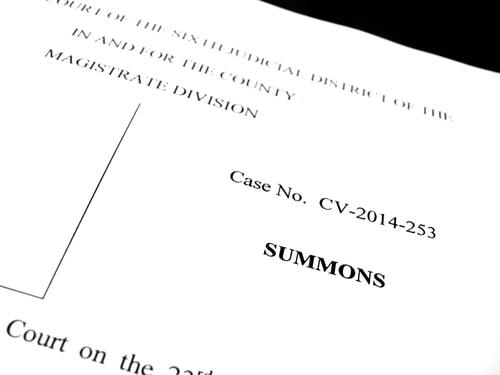Can I Contest a Divorce Petition Filed by My Spouse?
 If you have been served with a divorce petition filed by your spouse, you may be wondering if you can contest the divorce. The answer is yes, it is technically possible to contest your spouse's divorce petition. However, doing so may not be in your best interests. Regardless of how you choose to approach the divorce process, it is important to make sure you have legal representation from a qualified and experienced attorney.
If you have been served with a divorce petition filed by your spouse, you may be wondering if you can contest the divorce. The answer is yes, it is technically possible to contest your spouse's divorce petition. However, doing so may not be in your best interests. Regardless of how you choose to approach the divorce process, it is important to make sure you have legal representation from a qualified and experienced attorney.
The Process of Filing and Responding to a Divorce Petition in Illinois
In Illinois, either spouse may file a petition for dissolution of marriage. Once the petition is filed, it must be served to the other spouse. The spouse who was served with the petition then has 30 days to respond. This response may include objections to the divorce petition, although most of the time, a spouse will accept the petition, answer any claims made by their spouse, and allow the divorce process to proceed.
Illinois is a no-fault divorce state, and there are only a few requirements that need to be met when filing a petition for divorce. At least one spouse must have resided in the state for 90 days prior to filing the petition. When providing a reason, or "grounds," for the divorce, a divorce petition will simply state that the petitioner wishes to end their marriage due to "irreconcilable differences." Illinois law defines irreconcilable differences as an irretrievable breakdown of a couple's relationship to the point that attempts to reconcile would not be practical and would not be in the best interests of the couple or other family members.
You may disagree with your spouse, and you may believe that your marriage has not broken down irretrievably or that it can be saved if you are both willing to put in the effort. However, contesting your spouse's divorce petition in court and attempting to prove that the standard of irreconcilable differences has not been met is likely to just delay the process and cause you to spend more money on legal fees. Illinois law states that irreconcilable differences will be presumed if spouses live "separate and apart" for a continuous period of at least six months. What is more, the presumption of irreconcilable differences after a six-month separation cannot be contested. In fact, spouses do not necessarily even need to live in separate homes to be living "separate and apart," so your spouse may claim that they have met this standard because you have grown apart and are no longer living as a married couple. In any event, your spouse could choose to spend six months separate from you in order to meet this standard, and there will be nothing you can do to prevent the divorce from moving forward.
To protect your interests, it is often best to proceed as if your divorce will be happening. You can answer your spouse's divorce petition or even file a counter-petition of your own, and this will allow you to make your own claims and requests. As you proceed with the divorce process, you can reconcile with your spouse at any time, but you will still want to be prepared to address the various legal, financial, and practical issues involved in ending your marriage, ensuring that you will be able to move forward successfully, regardless of what happens.
Contact Our Oakbrook Terrace Divorce Lawyers
If you have been served with a divorce petition filed by your spouse in Illinois, you may be unsure about how to proceed. At Farooqi & Husain Law Office, we can help you understand your rights and options, and we will make sure you take the best steps to protect yourself as you move forward with the divorce process. To learn how we can help you meet your legal requirements and protect your interests, contact our DuPage County divorce attorneys at 630-909-9114 and arrange a consultation today.
Sources:
https://www.ilga.gov/legislation/ilcs/ilcs4.asp?DocName=075000050HPt%2E+IV&ActID=2086&ChapterID=59&SeqStart=3900000&SeqEnd=5400000
https://www.illinoiscourts.gov/Resources/e61316aa-bf80-409a-88b8-5165f29f57e6/Divorce_with_Children_Petition.pdf


 630-909-9114
630-909-9114




